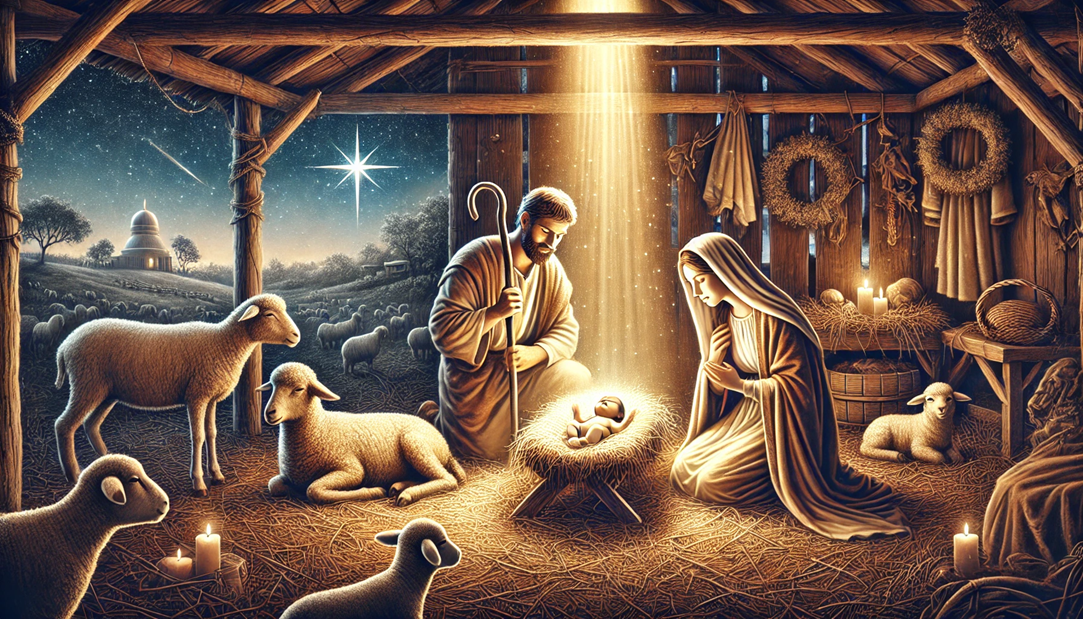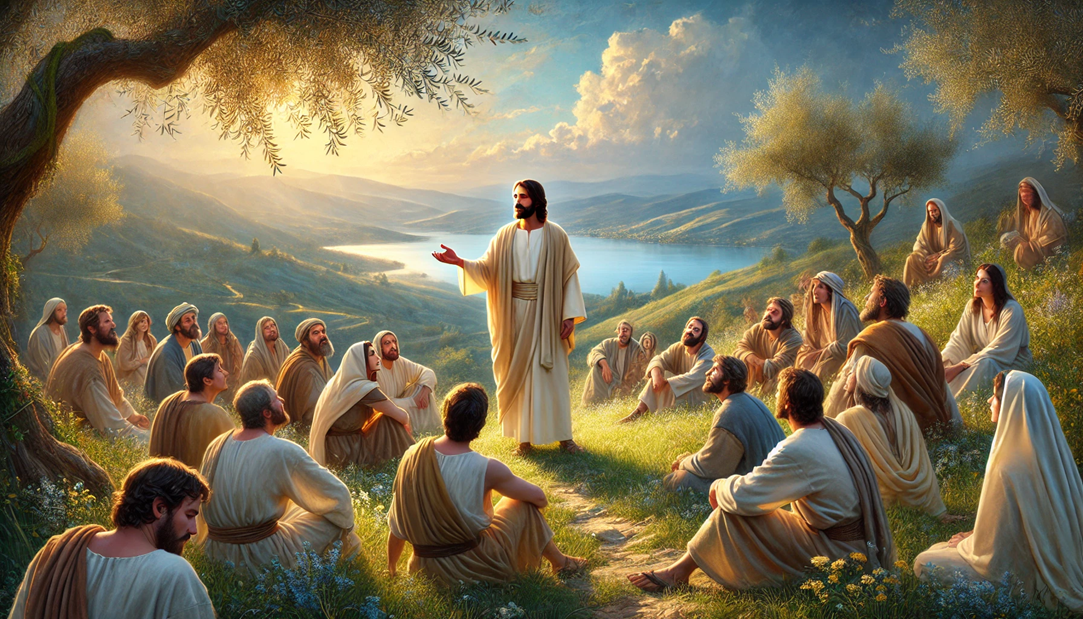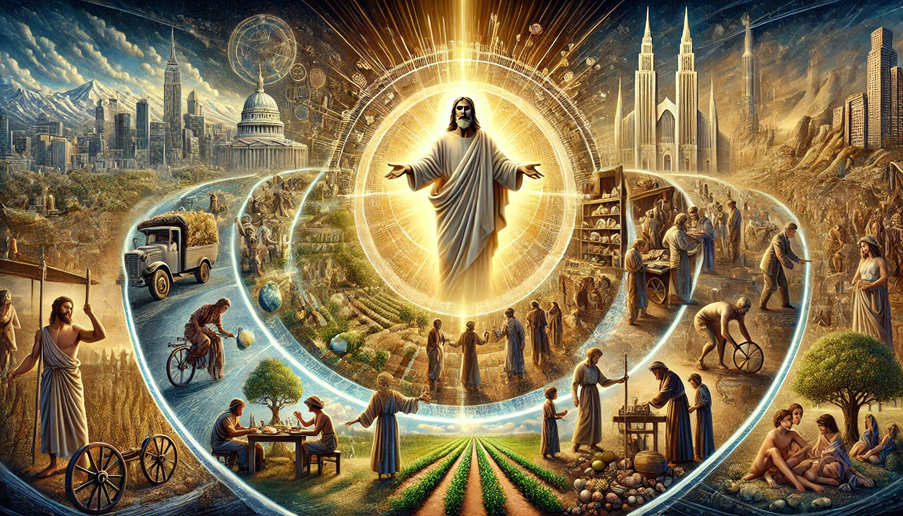The thief does not come except to steal, and to kill, and to destroy.
I have come that they may have life, and that they may have it more abundantly.—John 10:10
Are you an optimist?
Well, if you are, then you already know this. Optimism is closely linked to faith. And faith itself is the substance of things hoped for, as well as the evidence of things not seen.
Nowhere is this clearer than in the birth of Jesus Christ, which happened over 2,000 years ago.

Source: Image generated by OpenAI’s DALL-E
For someone with a destiny so divine, it’s striking how humble the early life of Jesus was:
- No, he wasn’t a royal born into power and privilege, in a major city like Rome. Instead, he was born as a peasant, in a manger surrounded by farm animals, in a tiny town called Bethlehem.
- This was an event that went unnoticed by society’s elite. There was no grand announcement here. No lavish celebration. Absolutely no pomp and pageantry.
- Frankly speaking, Jesus appeared to be a nobody. His parents, Mary and Joseph, were dirt poor. They had no wealth. No noble lineage. No political influence.
Why was this important? Well, you have to understand the situation at the time:
- Many Jews were feeling oppressed under the Roman Empire. They had suffered heavy taxation and the loss of freedom. So, they were hoping for a warrior-king. A liberator. A messiah. Someone who could challenge Roman rule. Fight fire with fire. Then restore the Kingdom of Israel to its rightful place.
- The Jewish people expected that such a messiah would come from aristocratic roots. He was supposed to have financial wealth, military resources, and political connections. This was what the prophecy in their scripture seemed to suggest.
- After all, for the Jews, this wasn’t just about nationalism. This was about ultranationalism. They were ready and willing to fight for a cause. They were eager for a new golden era of prosperity and independence. They just needed a strong leader to show them the way.
But, of course, it didn’t turn out that way. The arrival of Jesus defied the expectations of what a messiah was supposed to look like:
- Jesus wouldn’t grow up as an aristocrat, studying the art of politics. Instead, he would grow up as a commoner, studying the art of woodwork. His father, Joseph, was a carpenter. So, naturally enough, Jesus would become a carpenter as well.
- You have to remember: in those old days, there was no such thing as social mobility. Everyone had a fixed position in life. The hierarchy was static. People seldom, if ever, tried to switch roles.
- But Jesus was an outlier. Perhaps even a rebel. At the age of 30, he abandoned his trade as a carpenter. That’s when he started to embark on his divine ministry.
- His goal wasn’t to raise an army of fighters. Instead, he would raise an army of believers. His weapons of choice? No, not swords. Not spears. Not chariots. He would use only spiritual enlightenment and charismatic persuasion.

Source: Image generated by OpenAI’s DALL-E
Now, when you look at the actual timeline of Jesus’s ministry, you might be surprised to learn how short it was. His journey only lasted three and half years. But, still, that was enough:
- His parables. His miracles. His conversions. During this time, Jesus was incredibly productive.
- He planted the seeds for a new movement. This would grow and expand. Transforming the landscape of the Middle East, before making the leap and impacting the world at large.
Mind you, this change wasn’t an overnight thing. The compounding effect took time. But eventually, it would snowball into something quite remarkable. Here’s an observation from wealth manager Ben Carlson:
1,000 years after Jesus walked the earth the world was barely any richer. It took 500 years for income to double from there. Then between 1820 and 1900, the world’s income tripled. It tripled again in a little more than 50 years. It took only 25 years for it to triple again, and another 33 years to triple yet again.
It’s stunning, isn’t it? How did this happen? Well, it happened because of the moral philosophy of Jesus. We’re talking about ideas like fairness, stewardship, and equitable trade. All this served as the bedrock for early financial institutions:
- In the 12th century, a religious military order known as the Knights Templar would emerge. They developed an early money-transfer system, featuring deposits and withdrawals. This network would gain prominence, stretching across Europe and the Holy Land.
- Later, in the 15th century, the Medici family would rise to power in the Italian Republic of Florence. They set up the Medici Bank, the first true modern bank. It became the first organisation to use the double-entry method of bookkeeping, tracking debits and credits.
- Then, in the 16th century, the Reformation would spread across Europe. Calvinist theology began to take root, introducing what became known as the ‘Protestant work ethic.’ The people who believed in this were devoted to hard work, frugality, and the reinvestment of wealth. Capitalism became not just a necessity for them, but a force for moral good.
- Finally, in the 17th century, the Amsterdam Stock Exchange was established in the Netherlands. This became the first true modern stock market. At the same time, the Dutch East India Company was listed, becoming the first publicly traded corporation. From this point on, the distribution of money became more democratic. More accessible. More free.
The ripple effect here is astonishing. This sequence of events can only be appreciated when you look at the big picture. You can see how one innovation has led to another. Then another. Then another:
- If you connect the dots, you can trace a direct line between Jesus Christ and the development of our modern economic prosperity.
- The principles that Jesus taught — fairness, stewardship, and perseverance — have left an enduring mark on our history. Over centuries, across generations, these ideas have stood the test of time, continuing to guide the steady march of humanity’s progress.
- Here’s a sobering statistic: it was only 100 years ago that 60% of the world’s population lived in absolute poverty. Today, that number is only 10%. This is a true miracle, not to be taken lightly.

Source: Image generated by OpenAI’s DALL-E
Indeed, during this Christmas season, we have much to be grateful for. We can reflect on the powerful connection between optimism and prosperity:
- After all, being an investor is an act of faith, isn’t it? It’s about building assets. Weathering uncertainty. Believing in future potential.
- Just as the humble birth of Jesus led to a legacy that changed the world, so too will the seeds that we plant in our portfolios today grow into something greater in due time.
The light of Christmas reminds us that prosperity is never achieved overnight. It actually happens through patience. Through dedication. Through a steadfast belief in staying committed to a higher purpose:
- So, may this season fill your heart with warmth and joy. May you carry this cheer into the new year. May you always know that even the smallest seed of hope can grow into an extraordinary outcome.
- I wish you and your family a very blessed Christmas. May the enduring spirit of faith and courage guide your personal journey into the new year. May you gain more prosperity in the brighter horizon ahead.
Regards,
John Ling
Analyst, Wealth Morning
(Wealth Morning offers Managed Account Services for Wholesale or Eligible investors as defined in the Financial Markets Conduct Act 2013.)





John is the Chief Investment Officer at Wealth Morning. His responsibilities include trading, client service, and compliance. He is an experienced investor and portfolio manager, trading both on his own account and assisting with high net-worth clients. In addition to contributing financial and geopolitical articles to this site, John is a bestselling author in his own right. His international thrillers have appeared on the USA Today and Amazon bestseller lists.